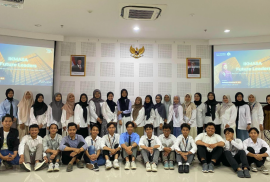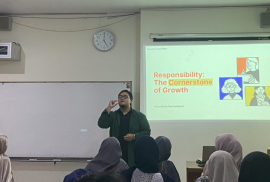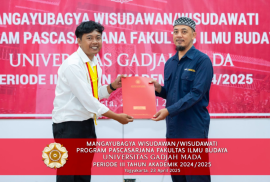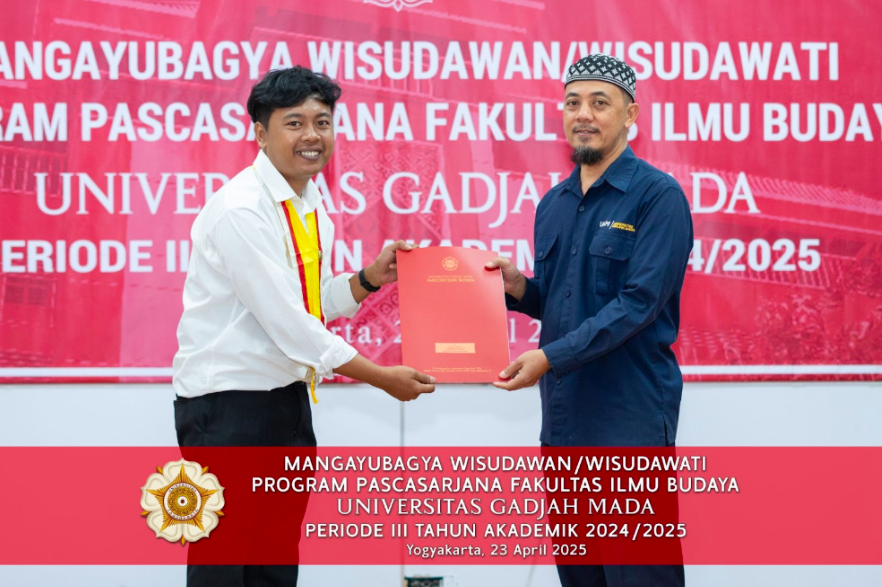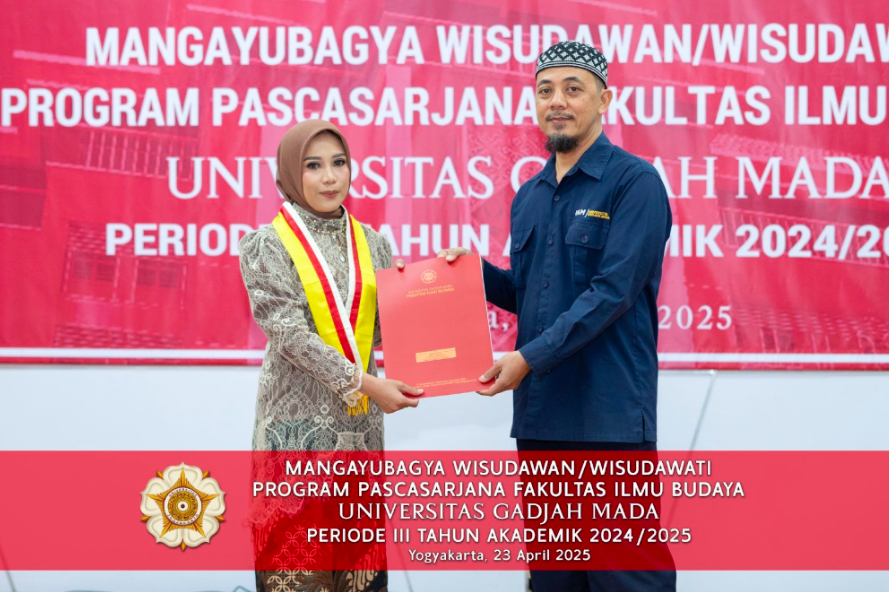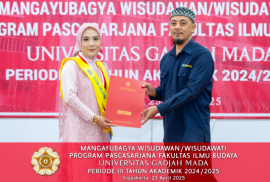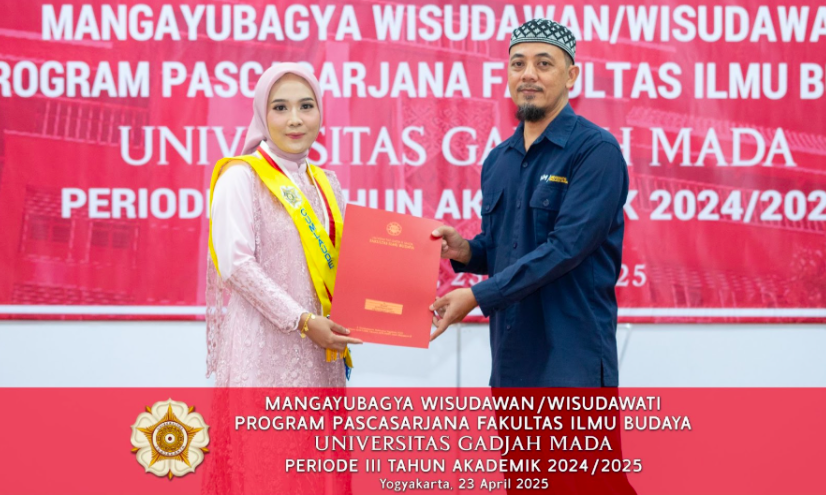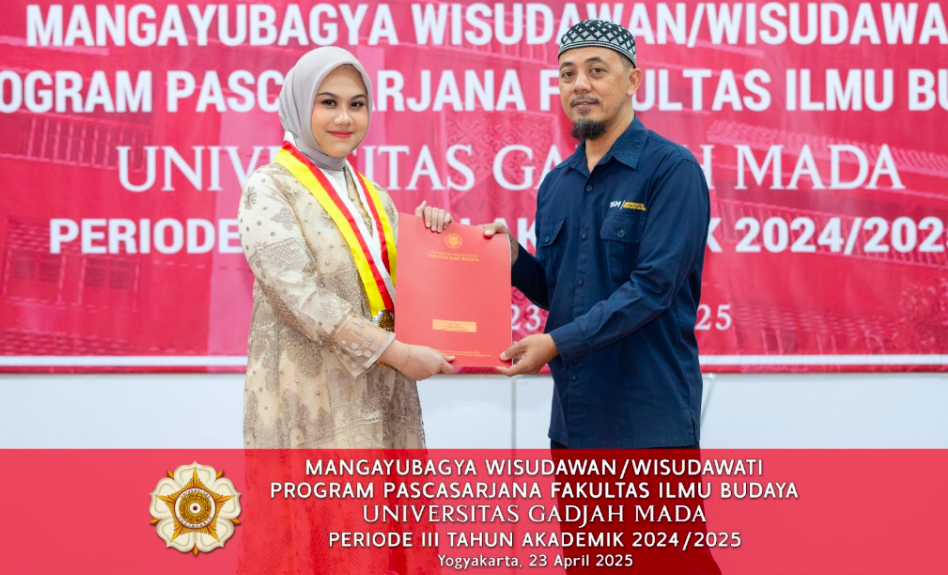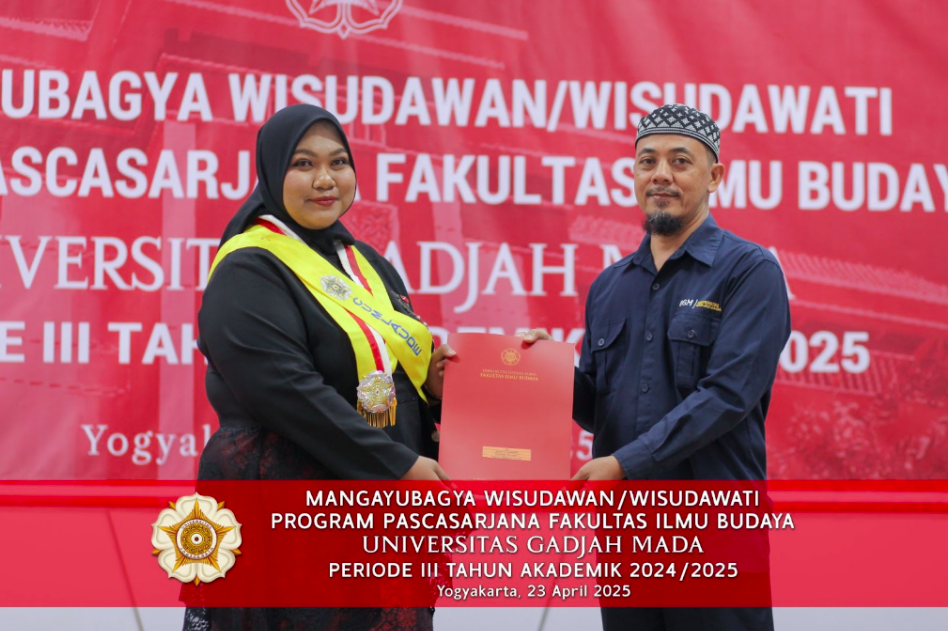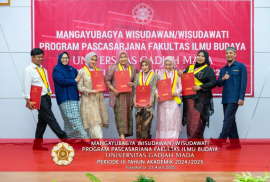Yogyakarta, May 10, 2025 – IKMASA Future Leaders 2025 was successfully held at the Faculty of Cultural Sciences, Universitas Gadjah Mada (FIB UGM). Carrying the theme “Think Beyond the Urgent: Leading with Strategy, Not Stress”, the event featured Nafesya Amrina Rasyada, S.S., as the keynote speaker.
The program was attended by members of the Arabic Literature Student Association (Ikatan Mahasiswa Sastra Arab or IKMASA) and aimed to encourage participants to understand the importance of strategic thinking in decision-making—especially in high-pressure situations.
In her presentation, Nafesya emphasized the diversity of critical thinking frameworks, highlighting the need for individuals to adapt their decision-making processes to context, timing, and specific needs. Her session covered various perspectives on decision making, types of urgency in both personal and professional settings, the qualities of an ideal leader in decision-making situations, and practical steps toward becoming a responsible individual who can own their decisions—whether right or wrong.
This initiative is part of IKMASA’s ongoing leadership and character development program, designed to support the achievement of the United Nations Sustainable Development Goals (SDGs), particularly Goal 4 (Quality Education) and Goal 16 (Peace, Justice, and Strong Institutions). Through this mentoring session, participants were encouraged to distinguish between decisions made under emotional pressure and those resulting from reflection and well-thought-out analysis—an essential skill for future leaders in both organizational and professional environments.
[Public Relation of IKMASA FIB UGM]

